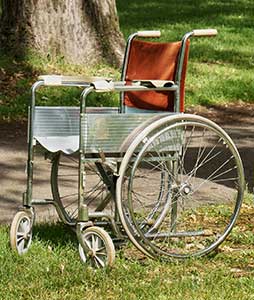Search
Minimal Fines Little Incentive for Facilities to Improve Patient Care
 It is a reasonable assumption for many people that nursing homes caught in the act of neglecting patient needs, disregarding safety standards and limiting their staff to levels deemed inadequate that fines and sanctions would be a deterrent from future abuses. This would be logical if the fines themselves had teeth and enforcement was both quick and consistent. For many states, however, this is not the case and civil litigation has become the only major deterrent left to motivate nursing chains into improving the quality of the care they provide. Lobbying has helped insulate many chains in certain states through the implementation of caps on compensation so that even civil action is becoming a less effective vehicle toward change.
It is a reasonable assumption for many people that nursing homes caught in the act of neglecting patient needs, disregarding safety standards and limiting their staff to levels deemed inadequate that fines and sanctions would be a deterrent from future abuses. This would be logical if the fines themselves had teeth and enforcement was both quick and consistent. For many states, however, this is not the case and civil litigation has become the only major deterrent left to motivate nursing chains into improving the quality of the care they provide. Lobbying has helped insulate many chains in certain states through the implementation of caps on compensation so that even civil action is becoming a less effective vehicle toward change.
Pennsylvania Auditor Offers Key Criticism Concerning Sanctions and Enforcement
As lawmakers in Illinois consider a bill that would propose prohibiting anonymous nursing home complaints, Pennsylvania is emerging from a three year trial of an identical measure which ended in failure. The number of nursing home complaints dropped by two thirds when the ban on anonymous complaints went into effect and the use of fines and other punitive measures was scrutinized by the state’s Auditor General, Eugene DePasquale.
 Nursing Home Law News
Nursing Home Law News










